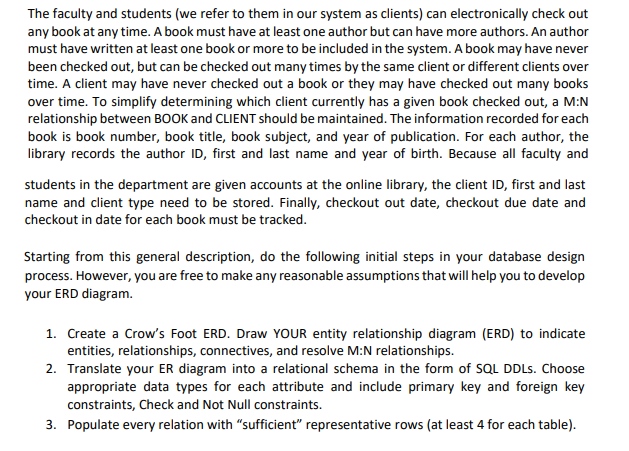Answered step by step
Verified Expert Solution
Question
1 Approved Answer
PLEASE, HELP ME WITH THIS The purpose of this assignment is to practice the creation of database schema. This Assignment requires that you draw your
PLEASE, HELP ME WITH THIS
The purpose of this assignment is to practice the creation of database schema. This Assignment requires that you draw your Entity Relationship Diagram (ERD) USING CROW'S FOOT STYLE, and to use Data Definition Language (DDL) and Data manipulating Language (DML).

Step by Step Solution
There are 3 Steps involved in it
Step: 1

Get Instant Access to Expert-Tailored Solutions
See step-by-step solutions with expert insights and AI powered tools for academic success
Step: 2

Step: 3

Ace Your Homework with AI
Get the answers you need in no time with our AI-driven, step-by-step assistance
Get Started


